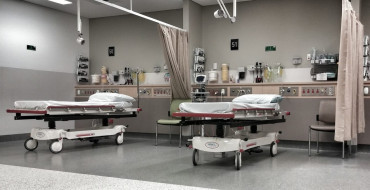I Was Injured Due To A Nurse And Staff Shortage. Was It Hospital Malpractice?

Hospitals in Pennsylvania have been dealing with a growing number of patients, which is a difficult situation only exacerbated by an increasing shortage of nurses and staff. This has led many hospitals to transfer patients to other facilities for treatment.
Are Pennsylvania Hospitals Experiencing Nurse Shortages?
Hospital nurses throughout the state are leaving their jobs with increasing frequency. Among the most common reasons are overwork, stress, exhaustion, and burnout. Consider these facts:
Pennsylvania currently has no minimum nurse-to-patient ratios.
One health network official reported in late 2021 that 35 percent of the network’s nursing slots were vacant.
Around the same time, an executive from a health and wellness organization stated that the organization had 670 inpatient nurse vacancies.
According to the Department of Health and Human Services, ICU beds around the country were at full capacity in January 2022. Due to the shortages of nurses and staff, the growing number of patients significantly increased the number of hospital-acquired infections, pressure injuries like bedsores, falls among patients, and delays in removing devices like catheters.
How Can Hospital Nurse and Staff Shortages Lead to Injuries?
Many patients have to wait an unreasonably long time for a nurse to respond to their call. In addition, the nurses may fail to properly monitor their patients because they cannot physically handle the workload that results from understaffing.
The quality of medical care nurses and hospital staff members provide to patients declines when insufficient staff fills patient needs. Often, this results in negligence, breach of duty care, and patient injuries. Studies show that the risk of health complications such as pressure ulcers, weight loss, urinary tract or surgical site infections, and patient mortality significantly increases.
Other serious problems may include the failure of nurses or other staff to recognize complications after a medical or surgical procedure and the failure to resuscitate patients or intervene in another manner when an emergency arises.
Can Understaffed Hospitals Lead to Increased Patient Deaths?
An intensive-care doctor at the National Institutes of Health Clinical Center stated that overcrowded hospitals with staffing shortages could increase patient deaths. The cause for this is partly because patients’ risk of dying significantly increases when high caseloads strain a shrinking number of hospital staff.
Many medical centers are so full that patients from small community hospitals who need to transfer to larger facilities for lifesaving dialysis or advanced heart attack care may end up stuck due to a lack of available beds. As stated by a professor of critical care at the University of Pittsburgh School of Medicine, this is what doctors call “dying in place.” Unfortunately, this problem is rising due to nurse and other hospital staff shortages.
Can Injuries Due to Hospital Staff Shortages Be Considered Malpractice?
Nurses are most effective when there is a proper nurse-to-patient ratio in place. There are industry standards for these ratios for each specialty. Hospitals must closely monitor their nurse-to-patient ratios and the nurses’ performance to ensure their patients are being adequately cared for.
Nurses who attend to too many patients are more likely to make mistakes that put their patients at risk. This includes a significant risk for medication errors that can lead to injuries or death.
A patient injured due to a shortage of nurses or other hospital staff may be classified as a form of medical malpractice. The patient may be able to file a malpractice claim against the hospital and medical professionals involved.
Why Choose Ross Feller Casey for Your Hospital Malpractice Case?
Ross Feller Casey is the leading medical malpractice law firm in Pennsylvania, representing catastrophically injured clients in Philadelphia and across the state. Our experienced attorneys have recovered more than $1 billion for clients over the past five years alone, with many of those cases involving injuries from nurse and staff shortages.
The hospital malpractice attorneys at Ross Feller Casey might be able to recover damages if you were injured to a shortage of nurses or hospital staff. You could be compensated for the costs of previous, current, and future medical treatment required for your injury, lost wages for past, current, and future time lost at work, and pain, suffering, and mental anguish. We also have a team of leading physicians on our staff to review medical records and assist with your claim.
Contact Ross Feller Casey today to set up a free consultation to discuss your legal options. You will not be charged anything unless we win or settle your case.
Disclaimer: Ross Feller Casey, LLP provides legal advice only after an attorney-client relationship is formed. Our website is an introduction to the firm and does not create a relationship between our attorneys and clients. An attorney-client relationship is formed only after a written agreement is signed by the client and the firm. Because every case is unique, the description of awards and summary of cases successfully handled are not intended to imply or guarantee that same success in other cases. Ross Feller Casey, LLP represents catastrophically injured persons and their families in injury and wrongful death cases, providing legal representation in Pennsylvania and New Jersey.





